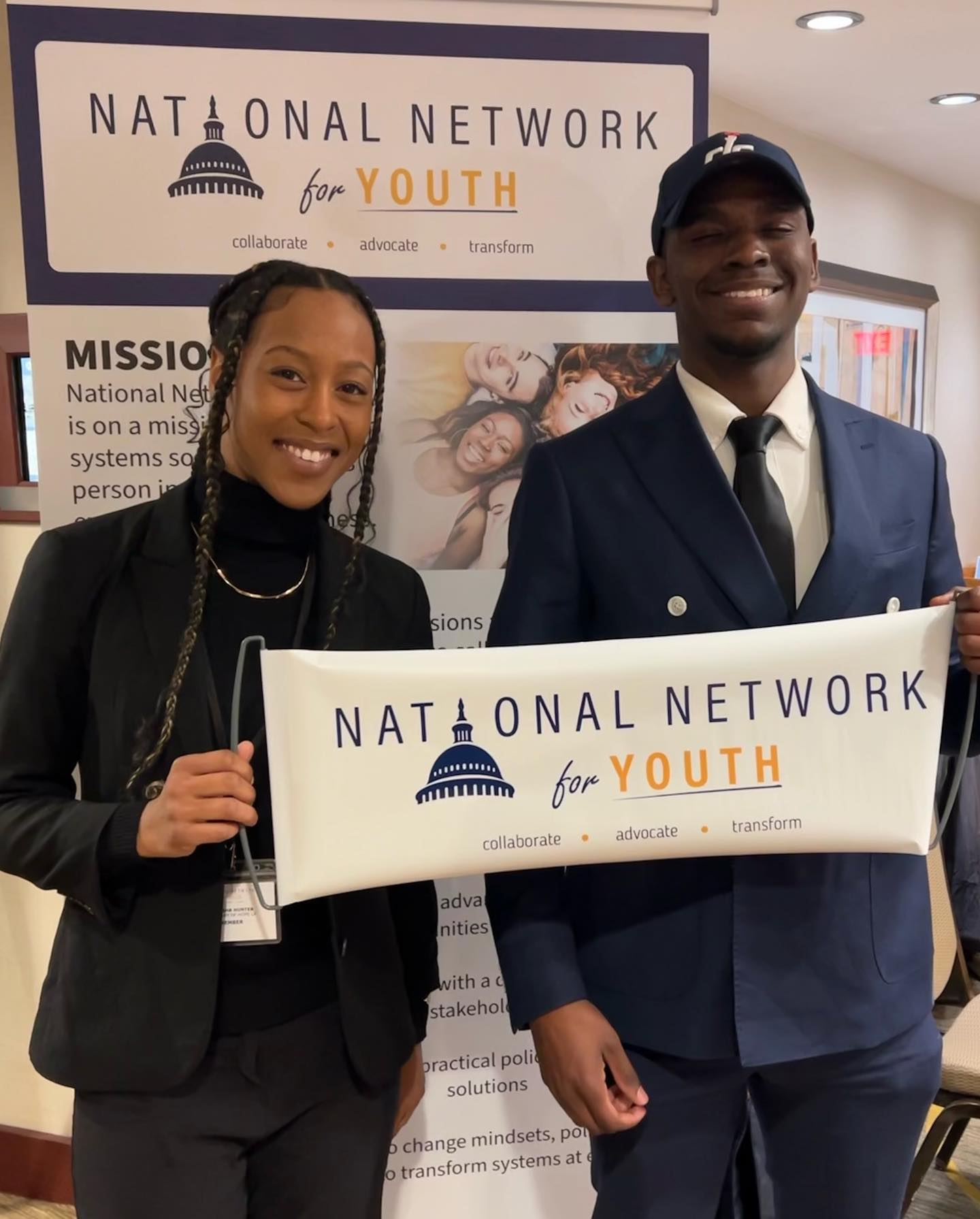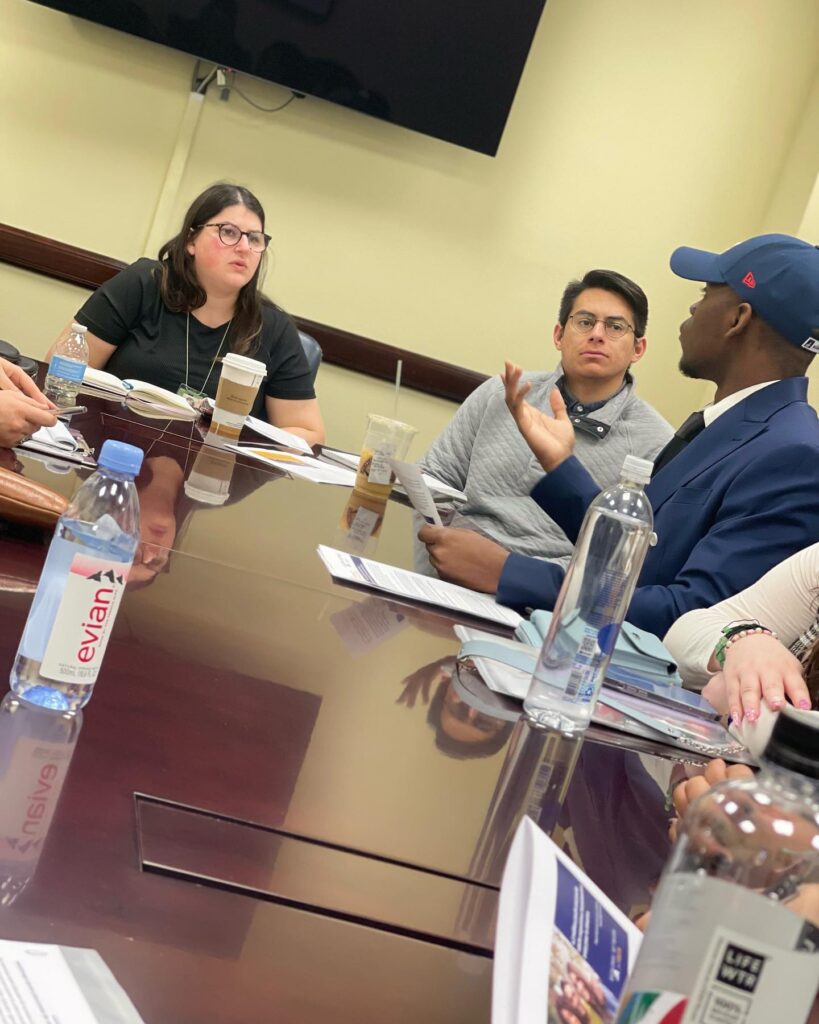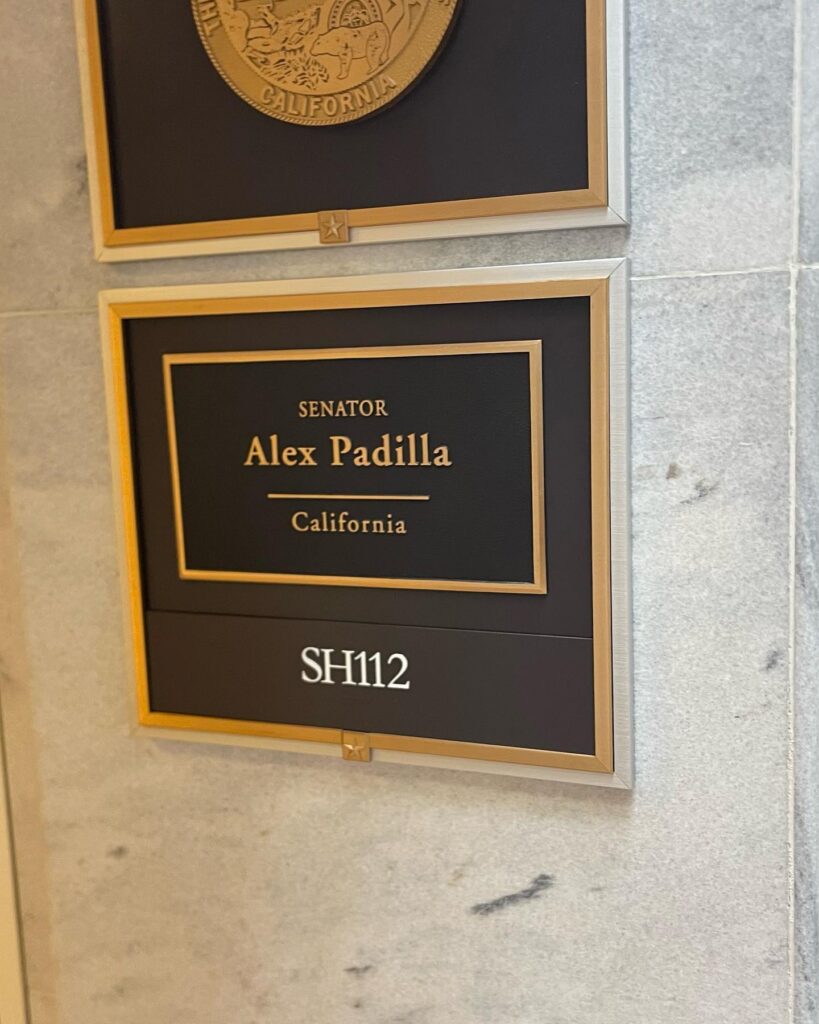Two of SOHLA’s policy and advocacy leaders, Nate and Cornesha, are in Washington, D.C. for National Network for Youth’s National Summit on Youth Homelessness. They combed the halls of the House and the Senate to meet with representatives and share their lived experiences to prevent and end housing crises for young people. They also took a tour of the White House thanks to Representative Mike Garcia.
Their activities included advocating for:
Runaway and Homeless Youth Trafficking Prevention Act (RHYTPA)
The Runaway and Homeless Youth Act funds three key pillars of prevention and intervention to help youth at risk of and experiencing homelessness. RHYTPA would make critical updates to plug youth experiencing homelessness into networks of support that power their growth and success.
- Clarifies that providers can serve more than 20 youth per program and have more than 20 beds in a building Increases the allowable length of stay from 21 to 30 days or the max as allowed by state law for BCPs
- Increases the age of eligibility from 21 to 25 for TLPs
- Increases authorized appropriations levels to $362 million annually
- Extends TLP services to survivors of sexual abuse, sexual exploitation, and trafficking, as practicable.
FY23 Appropriation Requests
Every young person in America should have a safe place to call home and multiple opportunities to succeed. Young people are on the cusp of adulthood: their lives are inherently transitional. Moreover, research indicates that their brains are still developing and do not reach maturation until age 25. Implementing these recommendations is critical to ending youth homelessness and vital to stopping their trajectory into chronic adult homelessness.
Our priority FY23 funding requests are:
- $300 million for the Runaway and Homeless Youth Act program administered by HHS, plus report language requests
- $800 million for the Education for the Homeless Children and Youth program administered by ED
- $100 million for the Youth Homeless Demonstration Program administered by HUD, plus report language requests
Low Income Housing Tax Credit – Student Rule Fix
Too often youth and young adults who have experienced homelessness must choose between stable housing or obtaining full-time education. Due to a limitation in the eligibility criteria for the Low Income Housing Tax Credit (LIHTC) program, individuals who are experiencing or have experienced homelessness would otherwise qualify to live in low-income housing are not eligible for LIHTC rental units if they attend school full-time. This bill would ensure that youth and young adults, as well as veterans who have experienced homelessness, can access affordable housing while simultaneously pursuing education.
SOH urges Congress to pass the Affordable Housing Credit Improvement Act and include the vital fix to the student rule so students experiencing homelessness can go to school full time and access vital LIHTC funded housing.
Homeless Children and Youth Act
The Homeless Children and Youth Act (HCYA) is a bipartisan and bicameral bill that restores local decision-making and improves the ability of communities to meet the unique developmental needs of youth and young adults (YYA) experiencing all forms of homelessness. HCYA will allow communities to serve some of the most vulnerable YYA by aligning federal definitions of homelessness.
It will ensure flexibility for local communities to use available resources to meet the needs that they identify, by ensuring that housing and services are tailored to the unique needs of each homeless population, including YYA. Further, it will increase the visibility and awareness of YYA experiencing homelessness through transparent and accurate data collection that will lead to helping communities leverage and attract more public/private resources to address homelessness.
Higher Education and Access and Success for Homeless and Foster Youth Act
The Higher Education and Access and Success for Homeless and Foster Youth Act (HEASHFY) is a bipartisan and bicameral bill that will remove barriers to college enrollment, affordability, and completion for homeless and foster care-involved youth. HEASHFY will require colleges and universities to improve outreach, resources, and policies for homeless and foster youth, including streamlining the FAFSA and eligibility process for financial aid, providing housing options between terms, and designating a single point of contact to help provide valuable services for these vulnerable students. It also requires the U.S. Department of Education to help resolve questions about a student’s independence, publish usable data, and ensure its programs identify, recruit and prepare homeless and foster students for college.



